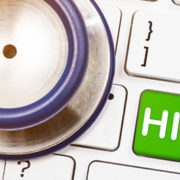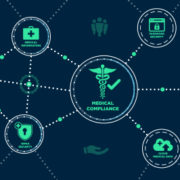HIPAA Security Rule: Your Guide to Administrative Safeguards
A healthcare data breach could have massive ramifications for your medical organization and result in expensive fines from the government. That’s why it’s crucial you adhere to HIPAA administrative safeguards — a set of security standards that protect your patients’ health information.
Healthcare data breaches have impacted 26 percent of consumers in the United States, according to research. Administrative safeguards, however, reduce the risk of unauthorized persons accessing valuable patient information. Here are three things you need to keep in mind.
1. Improve your data security
HIPAA has laid down a number of administrative safeguards for security management — procedures that improve the safety of your IT networks and systems. Taking the following precautions will improve the security of the data you collect and store in your medical organization.
- Use anti-virus software to safeguard your IT systems. These programs minimize the risk of hackers stealing valuable patient information. Make sure your software is up to date and you download and install the latest security updates and patches.
- Train your staff to use your IT systems properly. Human error makes up 52 percent of all security breaches, according to one study. Proper training will reduce the number of mistakes your employees make when collecting and storing data.
- Update legacy programs with the latest software. Some software developers no longer create security patches for old programs, and hackers could exploit these security vulnerabilities.
2. Have a contingency plan — just in case
HIPAA recommends that you have a contingency plan in the event of a data breach. This will reduce the amount of downtime you experience if hackers access your IT systems and steal patient information. It’s a good idea to keep your data in the cloud. You will be able to obtain information from another location in an emergency.
“Your business data is your most valuable asset. If it was stolen or destroyed, would your business be able to quickly get up and running again or even carry on at all?” says The Balance Small Business. “Data protection is one of many advantages of switching your business to cloud computing.”
3. Enhance your identity management processes
Make sure the right people access your data at the right time. Otherwise, you could jeopardize confidential patient information. TechTarget describes identity and access management as “the framework for business processes that facilitates the management of electronic or digital identities.” In other words, you need to monitor employees who use your IT systems and networks. Why is this so important? One study suggests that insider threats make up 75 percent of all data security incidents.
Enhancing your identity management processes is easier than it sounds. You can set up password controls for staff who use your systems and track your employees with identity management software.
“Policies that limit access, combined with employee education, are also important,” says Security Intelligence. “Maybe once more organizations get a sense of how insider threats hit the bottom line, they’ll invest more in preventing these security incidents from happening.”
HIPAA takes healthcare security seriously, and you should too. Improving your data security, devising a contingency plan and enhancing your identity management processes will protect sensitive patient information and reduce the risk of a data security breach.
Want to keep reading? Check out 3 healthcare technologies that will revolutionize the patient experience.






